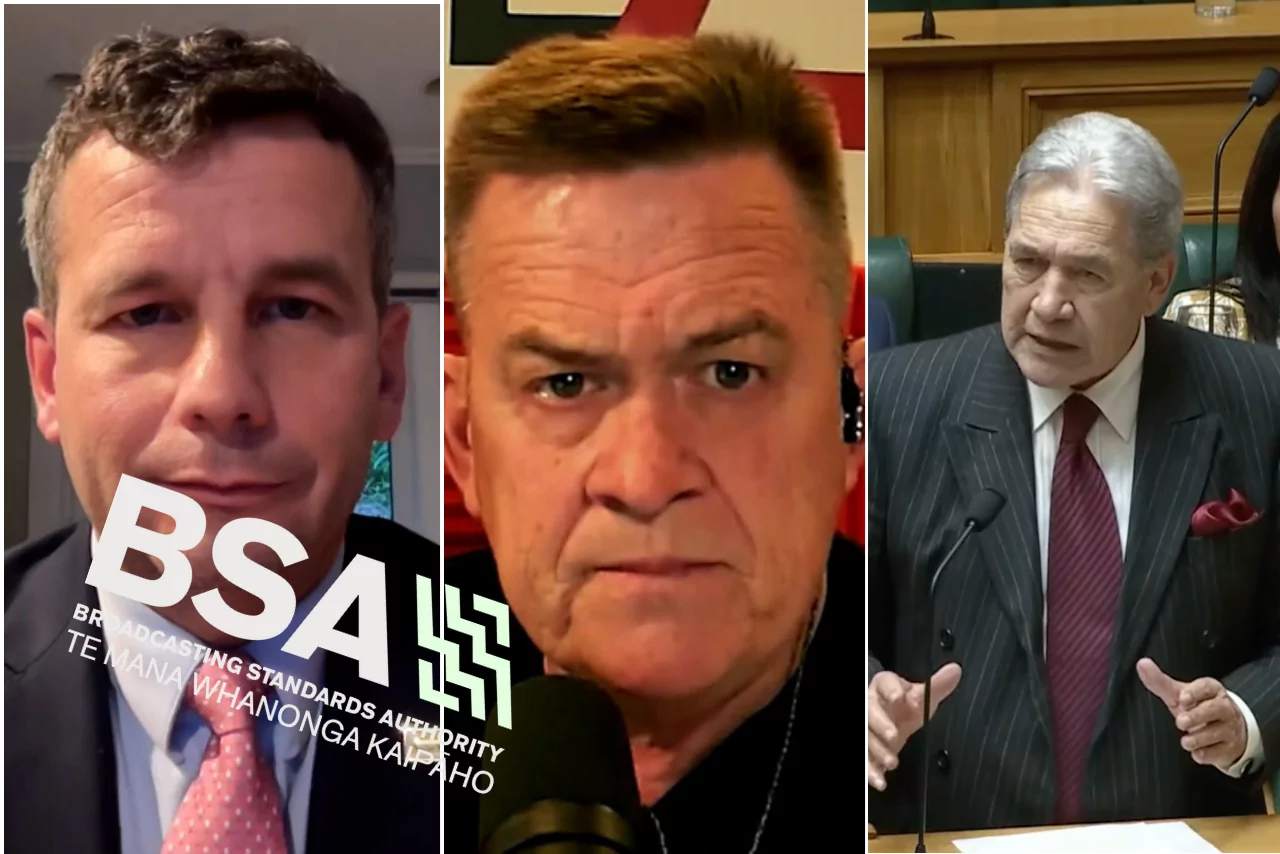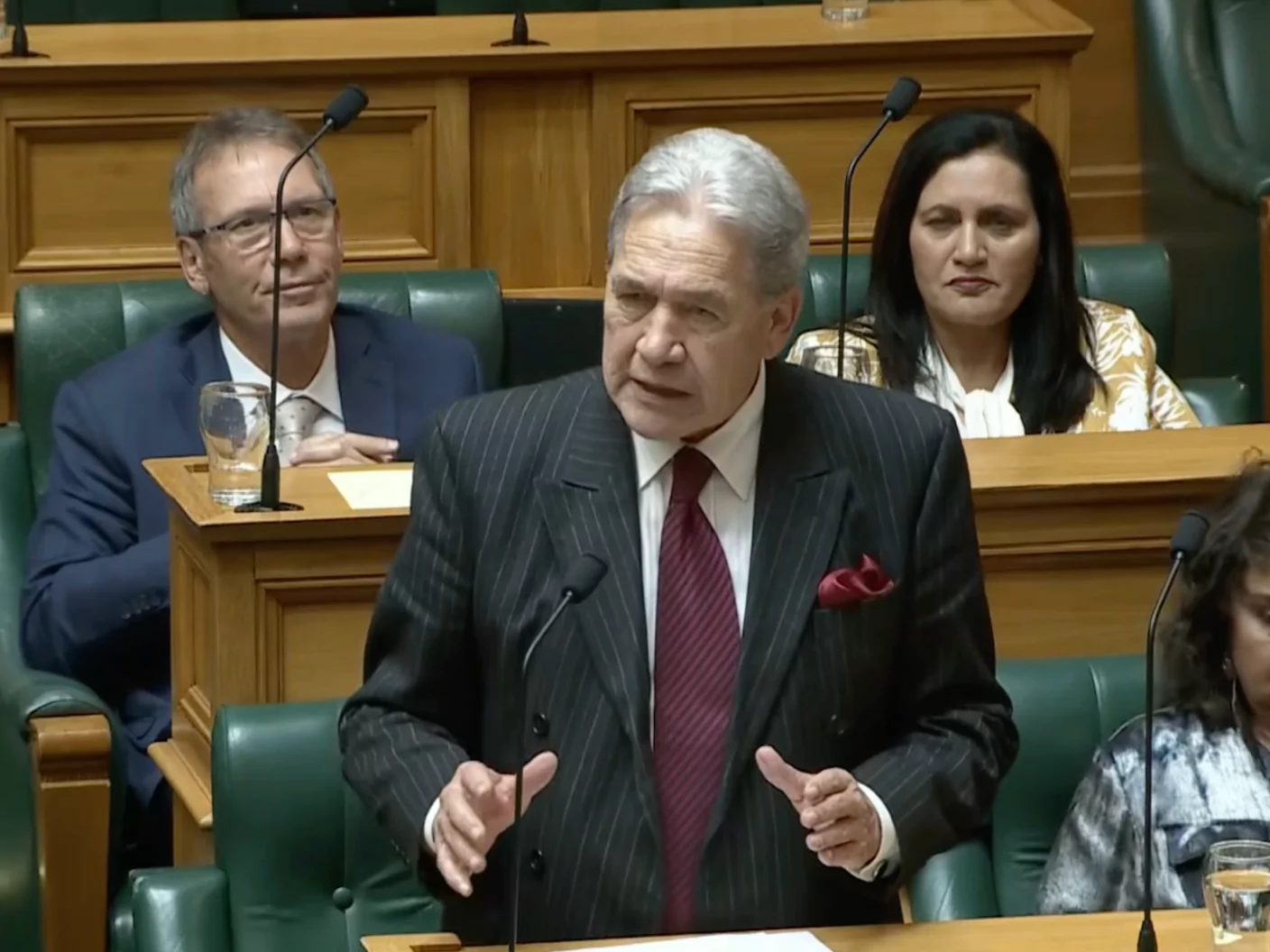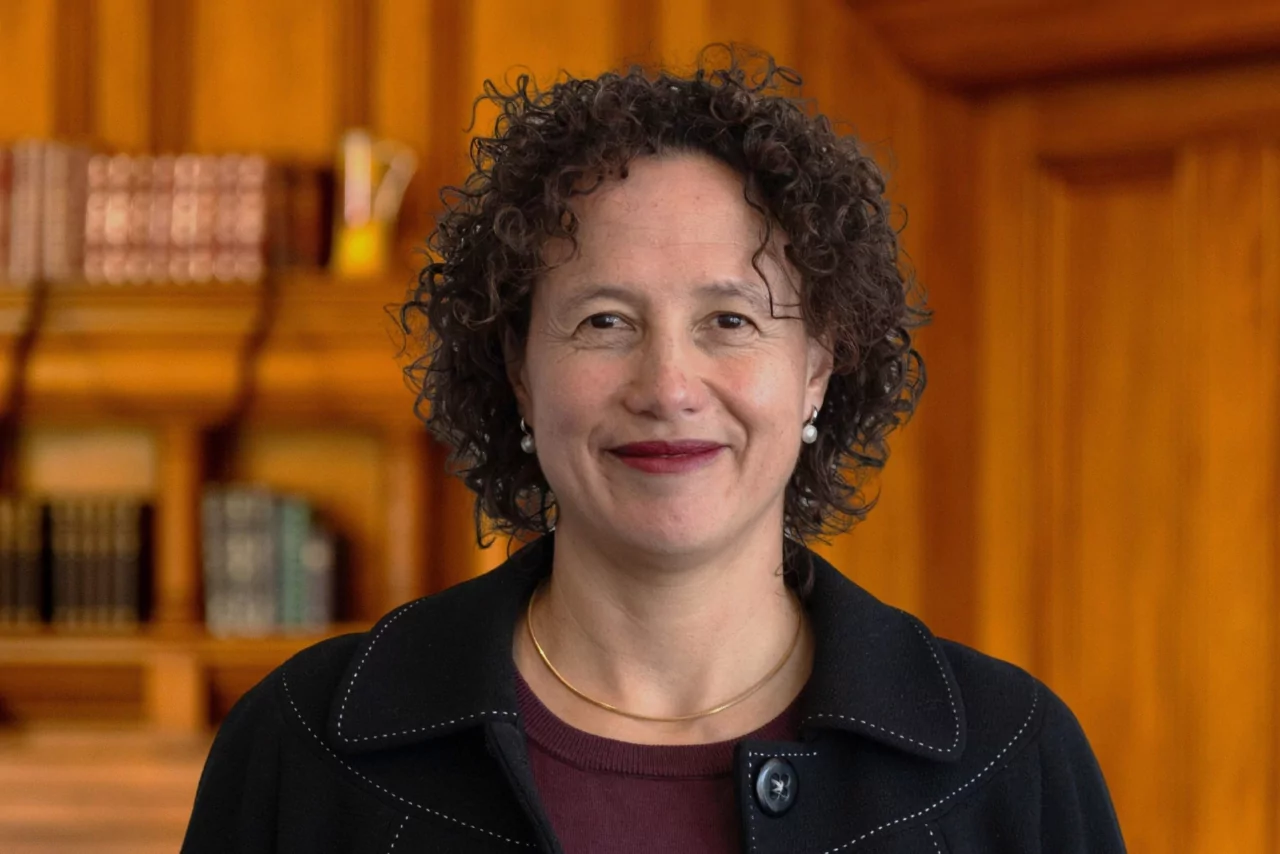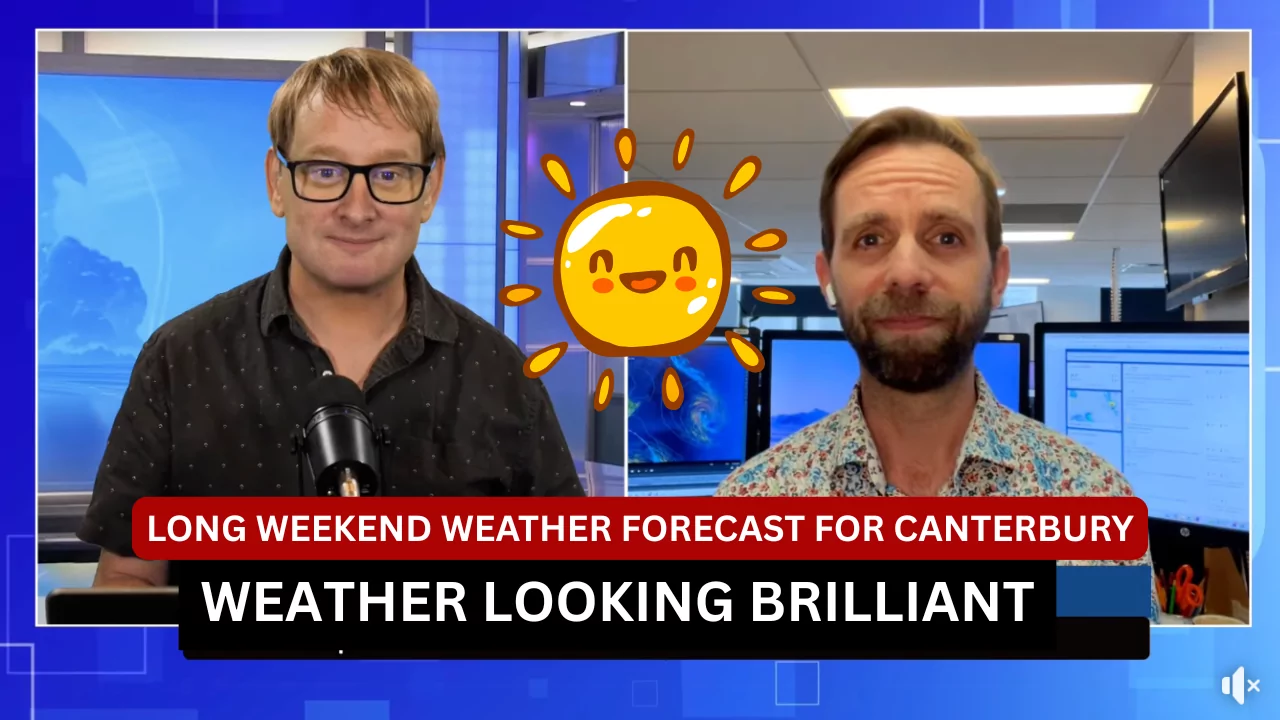Escaped youth tracked by Eagle helicopter, found hiding in New Brighton
The young person who escaped from a youth justice facility in Rolleston has been located...

Online broadcaster Sean Plunket has accused the Broadcasting Standards Authority of “bureaucratic overreach” after the regulator claimed it had the power to investigate online-only content, including his digital talk platform The Platform.
The BSA issued a provisional interlocutory decision saying it considers itself to have jurisdiction over The Platform, despite the fact the broadcaster operates online.
It sent a letter to Plunket, from BSA Chairperson Susie Staley, claiming the BSA ruled that The Platform’s livestreamed talkback content fell within the definition of “broadcasting” under the Broadcasting Act 1989, saying: “The Broadcasting Standards Authority found it has jurisdiction to consider a complaint about The Platform’s Live Talkback programme on the basis the transmission of the programme met the Broadcasting Act’s definition of broadcasting. Taking a purposive approach to the Act, which is designed to provide for the maintenance of programme standards in New Zealand broadcasting, the Act is appropriately seen as capturing such modern forms of broadcasting.”

BSA Chairperson Susie Staley
The decision went on to say the BSA viewed “other means of telecommunication” as including the internet, and that “broadcasting receiving apparatus” now includes computers and mobile devices. It concluded: “While this type of broadcasting may not have been contemplated when these provisions were drafted, under section 11 of the Legislation Act 2019, legislation applies to circumstances as they arise… We accordingly consider the Authority has jurisdiction and is therefore required to consider the complaint.”
Plunket said the ruling was “a blatant power grab. “The BSA has decided to change the rules without any reference to Parliament or the people who actually wrote the Act,” he said on air.
“We’ve been running The Platform for three years, and the BSA has never come near us because we’re not broadcasters under the law.”
He said the complaint prompting the decision came from activist Richard Fanslow, who objected to a July 22 broadcast in which Plunket described tikanga Māori as “mumbo jumbo.”
“Fanslow’s complaint alleged that my comments were unacceptable and racist,” Plunket said.” Plunket said the authority’s move would have sweeping implications for free speech in New Zealand.
“They’re basically saying they can regulate anyone who talks online, that includes podcasters, YouTubers, and even people on TikTok,” he said. “It’s absurd. If I comply, it opens the door for every content creator in this country to be censored by bureaucrats.”
Under the Broadcasting Act, the BSA can fine entities up to $100,000 and order the removal of material it considers breaches standards such as “good taste and decency.”
However, the BSA does not currently have legal authority to make rulings about online or streaming content, as the Act was written before the advent of the internet and explicitly applies to traditional radio and television broadcasts.

Winston Peters in Parliament / File
New Zealand Foreign affairs Minister Winston Peters posted on social media “why does the Broadcasting Standards Authority think they can make up their own rules in secret meetings to act like some Soviet era stasi.

Free Speech Union CEO Jillaine Heather said the BSA’s letter was “a move far beyond its legal mandate.
“The BSA has previously published material implying that freedom of expression itself can cause ‘harm’. This risks turning regulators into censors, punishing opinions rather than protecting open debate.
“Given that the BSA is funded in part by broadcaster levies, this attempted scope creep to claim podcasts and online media raises serious questions about motivation. Is the Authority seeking to expand its revenue base as well as its regulatory reach?
“The Union calls on Parliament to make clear that the BSA has no authority over podcasts or internet content, and to ensure any future changes to broadcasting law are debated openly – not smuggled in behind closed doors.”
Deputy Prime Minister David Seymour told Chris Lynch Media “When the Broadcasting Standards Authority was formed by Parliament in 1989, there was no internet.
“Parliament never asked them to police the internet, but they’re going after the Platform.
“They’ve decided it’s their job because a Broadcast is sound and pictures. Sounds like a brave move from them, I look forward to seeing their explanation.”
The Broadcasting Standards Authority (BSA) has defended its position that online broadcasters may fall within its existing jurisdiction under the Broadcasting Act, following questions about whether it can investigate digital-only platforms such as Sean Plunket’s The Platform.
In a statement to Chris Lynch Media, BSA Chief Executive Stacey Wood said the Authority’s jurisdiction was determined by the Broadcasting Act and it had “no intention of acting outside the Act.”
“Our view is that online broadcasting that resembles a traditional TV or radio station falls within our existing jurisdiction. The definition of ‘broadcaster’ and ‘broadcasting’ in the Act isn’t limited to TV or radio – it talks about programmes transmitted to the public by any means of telecommunication,” she said.
Wood said this interpretation was not new and that the BSA had been considering modern broadcasting forms for several years.
“In 2019 we announced we were reviewing our jurisdiction to apply a modern interpretation of broadcasting. In 2020 we paused that review, partly due to announcements that our legislation would soon be updated. The best and clearest solution lies in legislative reform of media regulation, which we’ve called for for over 15 years,” she said.
The BSA confirmed it had received its first formal complaint referral involving an online broadcaster.
“Having now received our first formal complaint referral about an online broadcaster, we must act, while still anticipating reform,” Wood said.
“Our published policy since 2020 has been that, if we receive a relevant complaint and there’s no other applicable standards body or regulator, and if the complaint raises issues of public interest or a risk of harm, we may accept the complaint and engage with the parties using our established processes.”
Wood said the BSA had not yet considered the merits of the complaint about The Platform.
“Therefore there is no ‘contrasting treatment’ to raise the kind of questions you’ve described.”
She said the Authority’s role was not to censor media but to uphold broadcasting standards while protecting freedom of expression.
“We don’t have – nor seek – the power to censor media. Our interest is in ensuring the public have access to accurate, reliable media content, and a regulator they can turn to if they think standards are breached. Far from shutting down free speech, freedom of expression is at the heart of every BSA decision. Only in a small number of cases do we find this right is outweighed by potential harm. In the past three years, the Authority upheld 20 (being 7%) of 288 complaints.”
Wood said this showed the system was working as intended to balance free speech with the need to prevent harm.
Political commentator and blogger David Farrar called the BSA’s move “an outrageous secret power grab” and urged the Government to intervene.
“Time to abolish the BSA as it is attempting a secret power grab over the internet,” Farrar said. “They’ve made a secret in-principle decision that they have authority over anyone producing audio or video content online, that means podcasters, YouTubers, and live streamers.”
He said the BSA’s interpretation of “other means of telecommunication” as the internet was “legally absurd.”
“If the BSA wants to expand its powers, it should go through Parliament. Governments have looked at this before and decided not to regulate the internet — so the BSA is taking the power for itself,” Farrar said.
He added: “This secret decision would introduce a massive censorship regime to the New Zealand internet. The Government should abolish the BSA and let the Media Council handle complaints — an industry body would never attempt such an outrageous move.”
Plunket said he plans to file Official Information Act requests to obtain all internal BSA communications related to the decision.
“I’m not going to roll over,” he said. “Either we stand for free speech, or we let bureaucrats decide what New Zealanders are allowed to hear.”
In a statement, Minister for Media and Communications Paul Goldsmith said “As Minister I cannot comment on operational matters or individual cases.
“However, my officials will be keeping me updated due to the potential impacts on media regulation.”


